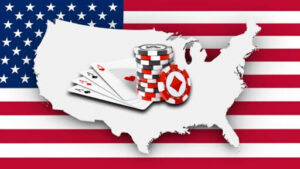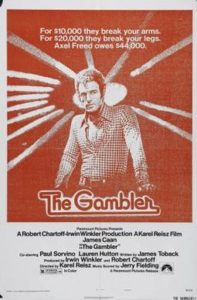
The past couple of years have seen major changes in the US gambling industry. There are now an increasing number of US sportsbooks and betting with companies such as FanDuel, DraftKings and BetMGM are now common place for American gamblers. This is especially the case on Android and other mobile devices.
The change has come about after an important Supreme Court ruling in 2018. This saw individual states being allowed to make decisions on gambling legislation, rather than it being a Federal task.
The state of New Jersey had been instrumental in the push for change. Since the ruling many New Jersey operators, especially casinos have opened sportsbooks. The battle for sites such as PointsBet and FanDuel to get new customers is an ongoing one.
There has been a big increase in the number of European mobile sporting apps. What lessons can the US learn from Europe? The provision of plenty of in-play betting is definitely a way of attracting new customers.
It’s so exciting to be able to bet on an event as it takes place. An even better experience is if you can provide your customers with live streaming of sporting events. Being able to watch on your Samsung or Android the event you’ve bet on is so exciting. Providing more live streaming of sports such as tennis, football, and basketball for example, will definitely attract new customers.
There are some great sites that give invaluable information about mobile betting. These include reviews looking at areas such as betting opportunities, how trustworthy they are, payment methods and the bonuses and promotions offered. Mainly thanks to advances in technology, the rise in popularity of legal mobile sports betting apps has exploded over the last 2 years.
The covering of events from all over the world has played a key role in the success of European mobile apps. The global coverage ensures that there is a steady flow of betting opportunities throughout the day and night. This is a feature that apps such as BetMGM and New Jersey operators offer to their customers. Offering more in the future can only be good news for them.
All sites will cover the main sports that take place, however covering others can pay dividends. Offering odds on dirt bike racing, pool, rugby, or even professional wrestling can see more customers joining. The more events that can covered, the better the service that will be provided.
Offering plenty of bonuses and promotions is another practice that US betting apps can use. This has been used a great deal in Europe and has provided a steady stream of new customers all eager to gamble on their Android and Samsung devices.
Welcome offers are already becoming common place on sites such as FanDuel and DraftKings. The provision of offers that are exclusive to those playing on their Android devices is another popular service carried out by European gambling sites.
It can be seen then that the offering of as many betting opportunities as possible is important for US apps such as PointsBet. If these can be offered throughout the day with lots of promotions too, then a healthy future looks guaranteed.
Whether you’re a casual casino goer who enjoys a controlled yet entertaining flutter, or a balls-out braggart who walks in with bundles of cash and stacks chips sky high, you will no doubt be looking for that often elusive ‘big win’. A dream run where you enter ‘God mode’ and everything you touch turns to gold. We’ve all had moments of that, but all too often they are fleeting. Some though, get to live this dream, and so what follows are a couple of examples of those who experienced at least a moment in time where they had the midas touch.
Much like people who claim not to like music, I can never quite bring myself to trust a person who hasn’t ever been to a casino. Whether dreaming of that Royal Flush on an online poker site, or hitting up a bricks and mortar establishment to show them how it’s done it’s something everyone should experience at least once. These two no limits individuals opted for the latter option with quite some gusto!
Elmer Sherwin – Lightning Strikes Twice
Sherwin by name, win by nature! This World War II veteran wasted no time in becoming a multi millionaire, by turning up to play slots at the Mirage, Las Vegas just ten hours after it opened to the public. This fortuitous decision resulted in his first jackpot of a life changing $4.6 million.
Thinking there was more luck to come, Sherwin would occasionally travel the world playing slots and hoping to win yet another big jackpot. In proof that lightning apparently does sometimes strike twice, sixteen years later at the ripe old ageof 92, he hit another jackpot, this time to the tune of $21.14 million on a Megabucks slot machine at the Cannery Casino & Hotel, Las Vegas. In a sign that the win went to the right man, Sherwin was generous with his windfall, donating to the Hurricane Katrina relief fund as well as helping support his family and friends.
Archie Karas – Dream Run
Archie Karas went to Las Vegas with just $50 in his pocket before going on to borrow a further $10,000 from a friend. His intention, to win big at Razz, a poker variant, in order to claw back some of the $2 million he had recently lost in a Los Angeles high-stakes poker game. He certainly achieved his goal and then some as the money he was loaned quickly ballooned into millions.
Karas amassed these millions by playing a series of pool games against an unknown individual in the Liberace Plaza on East Tropicana, before then taking him on at Poker. $4 million up, this drew the attention of others. What unfolded was Karas beating a succession of poker greats such as Stu Ungar, Chip Reese, Puggy Pearson, Johnny Moss, the list goes on. To comically top things off he then switched to dice, and won yet again. he was eventually $40 million up.
Of course as you might expect with someone so gung-ho unfortunately just a year later he’d lost it all (over a three week period – including an $11,000,000 dice loss, and $17,000,000 loss at baccarat). he’s had a few mini runs (by his standards) since, including one in which he turned $200 into close to a million but as per usual it typically ends badly. He’s certainly a man with talent, but unfortunately he clearly doesn’t know when to call it a day.
 Not to be confused with the 2014 remake, the original 1974 version of ‘The Gambler’ is crime drama film directed by Karel Reisz and starring James Caan, Paul Sorvino and Lauren Hutton. So set in a time a world away from today’s online play. The orginal screenplay, written by James Toback, was described by the author as ‘blatantly biographical’; by his own admission, Toback gambled ‘recklessly, obsessively and secretly’ while teaching literature at the City College of New York.
Not to be confused with the 2014 remake, the original 1974 version of ‘The Gambler’ is crime drama film directed by Karel Reisz and starring James Caan, Paul Sorvino and Lauren Hutton. So set in a time a world away from today’s online play. The orginal screenplay, written by James Toback, was described by the author as ‘blatantly biographical’; by his own admission, Toback gambled ‘recklessly, obsessively and secretly’ while teaching literature at the City College of New York.
In the film adaptation, Axel Freed (Caan) is a young, handsome and highly successful college professor, whose otherwise diverse life is dominated by a gambling addiction. Indebted to his bookmaker, Hips (Paul Sorvino), to the tune of $44,000 after an all-night gambling session, Freed borrows the money from his mother, Naomi (Jacqueline Brooks), a successful medical doctor.
However, rather than repaying his debt, Freed instead travels with his girlfriend Billie (Lauren Hutton) to Las Vegas, where he continues gambling. Predictably, he loses everything on a series of ill-conceived basketball bets. As the loan sharks, including the polite, but ominous, Carmine (Burt Young), start to circle, Freed bribes one of students, college basketball star Spencer Lewis, to deliberating limit, or ‘shave’, points in his next game.
His criminality pays off, leaving him ‘in the clear’ but, after leaving the gynasium, walks to a nearby black ghetto, where he deliberately starts a fight with a pimp (Antonio Fargas), only to be brutally slashed across the face by a prostitute. In the final frames, Freed catches sight of his reflection in a mirror and smiles, enigmatically, at the cut on his face.
In these solitary, locked down days, a knock on the door from a grocery delivery driver can start to feel like a much anticipated visit from a long lost relative. Add rain into the mix and life starts to feel like some kind of perverse yet boring reality TV show. At times like this we need stimulation. Finally getting around to watching that backlog of movies you’d been meaning to, dusting off a few books, DIY, cleaning your shower curtain for no reason (again). Life can get dull. The one shining light though – the trump card of the modern age – is Internet access. All of the genuinely fun stuff we love on the outside, such as casino games, is available at the click of a button.
Just weeks before our usually mile a minute world decided to put its feet up for a bit, I was at one of my favourite Grosvenor Casinos on the coast. I’m not a regular, so for me and my accompanying family members it was a bit of a treat to be up close and personal with the “big hitters” with no shortage of casino games such as roulette, poker, and of course slots to choose from. When at home I’d typically be going spins crazy on the likes of the games at Slot Strike Casino (check out Rocket Men :-D), but in a bricks and mortar establishment I tend to feel the place out and see which slots offerings are drawing people in. I can often be spotted hovering around near someone on a losing run, waiting to pounce!
It’s not uncommon for me to have good fortune on my side as I’m spinning those wheels, and I’ve had and witnessed a few memorable wins on that other casino wheel, the roulette wheel too. An improbable time where my brother got a single number up three times in a row, a Nostradamus style run while choosing between red and black. Fun times to look back on. So, at this bore-tastic moment in time, I’ll be loading up my web browser and recreating some of those treasured casino memories in the comfort of my own home. Of all of the casino games, online slots and roulette are often the most faithful to their real life counterparts, and so let’s hope my trademark casino good fortune sticks with me online as well as off.
